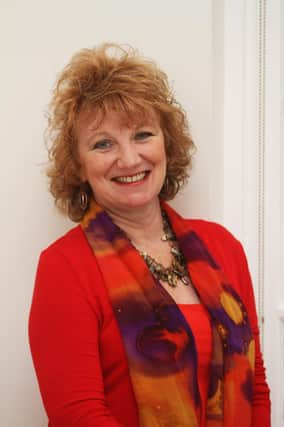Believe it or not, babies are feeling the impact of the pandemic - Dr Suzanne Zeedyk


Many people may feel confused by this suggestion. “Babies are too young to be aware of it. They won’t remember it. How could they be affected?” It is this question that leads me to celebrate the Scottish Government’s Parent Club’s new campaign Wellbeing for Wee Ones. Although the initiative is aimed at parents, the scientific insights it shares hold outcomes for the whole of our society.
Babies are born already connected to other people. They pay attention to facial expressions, follow conversational turns, read meaning in our emotional tones. All these experiences are built into their brains, which are growing more rapidly than they ever will again. When experiences feel safe, that’s what’s coded in their brain synapses. When experiences feel scary, that’s what gets coded. What makes a baby feel safe? Well, the way their parents and carers interact with them.
Advertisement
Hide AdAdvertisement
Hide AdIt is fascinating to realise that one of the fundamental things a baby is learning when parents talk or sing or read to them is that the world is safe and that they are safe. They won’t have to cope with big overwhelming feelings alone. They’ll have help and comfort and company. Not all that long ago, even scientists didn’t realise how tuned in babies are. One of the challenges is to communicate these discoveries to the public. That’s what the Scottish Government’s Parent Club’s Wellbeing for Wee Ones campaign seeks to do.
Over the last year, young children will have encountered people with masks. They will have heard more tension in parents’ voices. Maybe less laughter? They may have grieved the loss of grandparents. They might have wondered if they did something bad and that’s why they can’t see their friends at nursery anymore. As a society, we tend to put uncomfortable things out of our mind. Yet, many of our children will have experienced exactly these things. So, we need to stay alert to that, so that we can take their feelings seriously and help. Babies will be fine as long as life teaches them they aren’t facing these tough feelings alone.
And that really is true for all of us. We get through tough times better if we don’t feel we’re facing them alone. The last year has put immense strain on families. Human beings are not meant to raise our babies in isolation. Yet that is precisely what heroic, pressured parents throughout the world have done in 2020. As we begin to exit the pandemic, we need to remember that babies are carrying their personal experiences of this time in their brains and bodies. If we remember this, we can help.
I am proud to live in a country where the government has responded to this pandemic by launching a campaign for infant mental health. That’s why I want everyone, not only parents, to know about it. The Wellbeing of Wee Ones matters to us all.
To learn more about how you shape your baby’s brain growth, visit: parentclub.scot/wellbeing
Dr Suzanne Zeedyk, Developmental Psychologist and Research Scientist, Parent Club
Comments
Want to join the conversation? Please or to comment on this article.